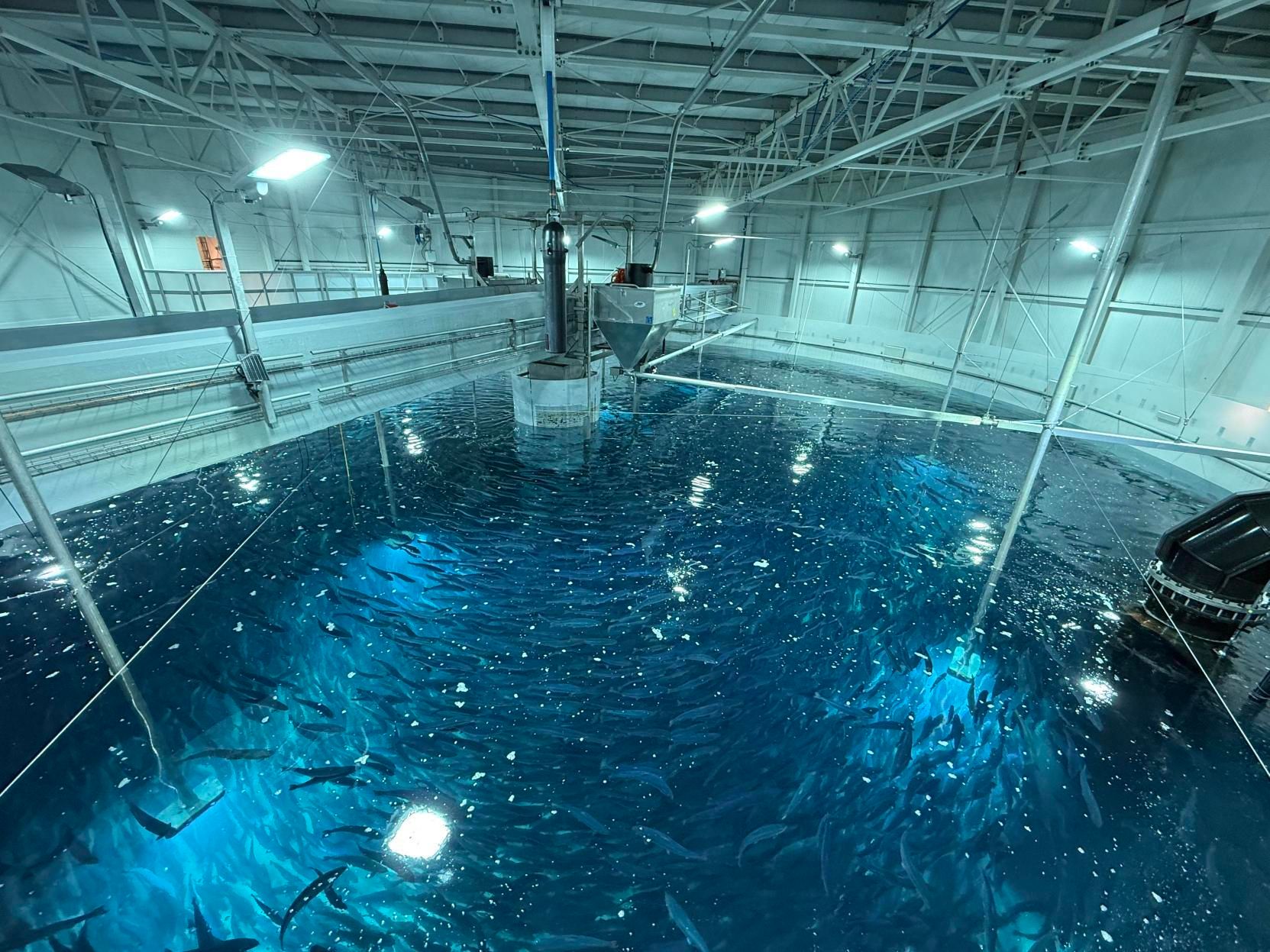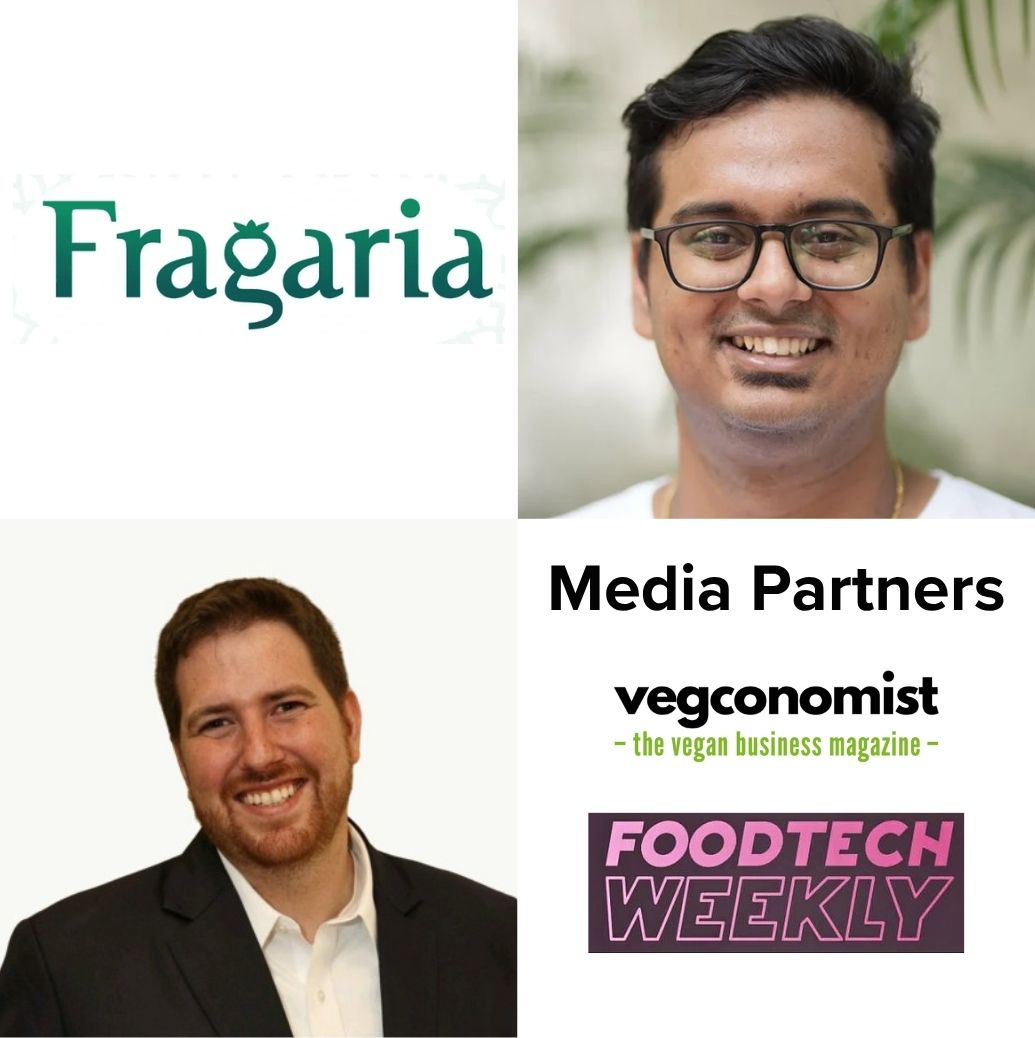
#272
Hi there,
Daniel here — I attended EAT Stockholm Food Forum a few weeks ago, and just finished reading the 2025 EAT-Lancet report which was launched at the event. In short, the new report is based on much stronger evidence and scientific data vs the 2019 version, giving much more confidence about the findings.
We’re heading for a climate overshoot lasting 30-40 years, and as the food system causes 30% GHGs, it’s a big part of the problem. EAT-Lancet (again) proposes a Planetary Health Diet that would not only make sure food systems function within a safe operating space, but also that 15M premature deaths (from poor diets) would be cut annually.
I wrote some reflections from the event here, which you should totally check out, not least for all the pretty pictures.
It felt good to be in a room with 700+ changemakers passionate about building a better food system.
Then I received a note from my friend Ryan Grant Little, which was a good reminder that while most of us debate ideas from a safe distance, he’s out there doing the real work — in a war zone — making an actual difference where it matters most.
Ryan is a very successful serial entrepreneur, foodtech/climatetech business angel, and podcaster, who these days is a full-time volunteer supporting Ukraine, and even relocated to Kyiv earlier this year. Ukrainians are resilient. As Ryan noted recently, “I love this picture from last Saturday morning as people do their market shopping while the fire from a ballistic missile hit is being put out a few blocks away.”

Here’s Ryan at a recent roundtable with President Zelensky, speaking about the need to physically bring international defensetech investors to visit Ukraine, as those who work only from abroad miss the big picture, and about why Canada would make a good strategic partner for manufacturing and licensing deals.

Ryan has started a foundation, Roxolani Trust, to give Ukraine what it needs to survive and succeed. Subscribe to his newsletter on the website, and follow them. You can also ping him to provide financial support, in-kind donations, volunteer help, and feedback.
He’s out there changing lives. Meanwhile, I’m out here changing tabs. Please support him.
This week's rundown:
🇺🇸 Kula Bio closes Series A-1 to replace synthetic fertilizers with sustainable nitrogen tech
🥛 Remilk & Gad Dairies debut ‘New Milk’ — lactose-free, low-sugar, precision-fermented
💶 Oyster Bay closes €100M Fund II for next-gen food startups.
Today’s newsletter was sent to {{active_subscriber_count}} subscribers. Welcome to FoodTech Weekly.
SPONSORED:
The Briefing Leaders Rely On.
In a landscape flooded with hype and surface-level reporting, The Daily Upside delivers what business leaders actually need: clear, concise, and actionable intelligence on markets, strategy, and business innovation.
Founded by former bankers and veteran business journalists, it's built for decision-makers — not spectators. From macroeconomic shifts to sector-specific trends, The Daily Upside helps executives stay ahead of what’s shaping their industries.
That’s why over 1 million readers, including C-suite executives and senior decision-makers, start their day with it.
No noise. No jargon. Just business insight that drives results.
FUNDING
Iceland doubles down on land-based salmon

🇮🇸 First Water, €24M ($27.8M), land-based salmon farming in Þorlákshöfn, Iceland (in related news, Laxey in Vestmannaeyjar celebrated its first harvest).
🇺🇸 Kula Bio, Series A-1 round (sum undisclosed), transforming agriculture through sustainable nitrogen solutions replacing synthetic fertilizers.
🇳🇿 Nbryo, $10M Seed, bovine IVF platform designed to ‘breed better beef’. Investors: Tenacious Ventures, AgriZeroNZ, Queensland Investment Corporation (QIC), the Murdoch family and Mandalay Venture Partners.
🇳🇱 SAIA Agrobotics, €10M ($11.6M), robotics developer for automated greenhouse growing. Investors: Check 24, EIC Fund, Navus Ventures, and Oost NL.
🇫🇷 Green Spot Technologies, €5M ($5.8M), fermented, upcycled ingredients that could replace e.g. cocoa. Investors: Team for the Planet, the European Innovation Council, EIT Food, and various angel investors.
INVESTMENT CLIMATE
Harish Varadharajan, Co-founder & CEO of Fragaria Fruits, on how to get funded in 2025
This week, Alex Shandrovsky met with Harish Varadharajan, co-founder & CEO of Fragaria Fruits, which redefines India’s $140B fruit-eating experience by making high-quality berries available year-round in a market that currently only sees strawberries for three months a year. Fragaria recently closed a $2M led by WEH Ventures and Rainmatter.
The conversation can be found on Spotify and Apple Podcasts.
Top three takeaways:
How WEH Went From “Too Early” to a Fast Term Sheet. WEH Ventures initially passed at the idea stage but tracked the team for six months. Once Fragaria had (1) plant-level performance, (2) clear demand signals from Indian e-commerce players, and (3) real interest from HNIs for debt, WEH flipped and issued a $500k term sheet within days—even though Fragaria wasn’t formally fundraising. “When WEH Ventures was tracking us, they tasted our berries, and they were like, ‘Man, these are extraordinary. These guys know what they're doing.’ Then they came back, they called me for a meeting in Bangalore on a Friday night, and on Monday, we got a term sheet for half a million.”
Prove the Plant, Not the Farm. The pilot was designed only to prove product and plant-level economics, not to build a profitable farm. They worked backwards from “how do we get 2–3 kg/day to test?” and optimized everything for ultra-low CAPEX. “ We have to prove we can get great quality strawberries in India. People are ready to buy these properties. So we don't need cages and tons of strawberries. We just need to get 2-3 kg of strawberries a day.”.
Debt as a Core Part of the Scaling Strategy. Harish views Fragaria as half farming, half balance-sheet management. With a physical, cash-generating asset, he doesn’t want to use equity for every expansion. Instead, they use high-yield, tax-advantaged debt where the asset sits with the lender and Fragaria pays rent linked to project performance. “ Given this nature of the business, we cannot dilute the equity every time we need to build a new factory. We have to work on the debt of the project to scale up.”
NOTEWORTHY
Planet Tracker warns: Methane goals are full of hot air

📉 New research from thinktank Planet Tracker says the Global Methane Pledge (which 150 countries signed in 2021, committing to cut methane emissions with 30% by 2030), will be unachievable without action from agrifood giants. Of the 52 largest meat, dairy and rice companies (emitting millions of tons of methane in total), only one — Danone — has a specific target to reduce its methane emissions.
🍚 Speaking about methane: The Global Methane Hub has committed $30M to launch the Rice Methane Innovation Accelerator, a programme supported by The Rockefeller Foundation to develop and scale technologies that reduce methane emissions from rice cultivation while maintaining yields and profitability for farmers in developing countries.
🐝 A new study shows that solar farms — if managed correctly — could become important refuges for bumblebees in Britain.
🥛Remilk of Israel has partnered with local family-owned dairy Gad Dairies to launch ‘New Milk’, a low-sugar, lactose-free milk made partially from recombinant dairy proteins made using precision fermentation. The retail price will be on par with plant-based milks and premium dairy products.
🗑️ An estimated 320M lbs of food (145M kgs), representing 267M lost meals worth $550M, went to waste during this Thanksgiving, according to ReFED (h/t FoodHack).
🇸🇬 Singapore has replaced its ‘30 by 30’ goal (which aimed to produce 30% of the country’s nutritional needs locally by 2030) with new targets for protein and fibre production by 2035. Just last week, the Singapore Food Agency awarded $42M to 11 projects in alt protein and food safety innovations.
💶 Oyster Bay of Hamburg, Germany has announced the final closing of its €100M Fund II, which will invest in startups building the future of food. Backers of the new fund include e.g. the European Investment Fund (EIF) and KfW.
🍖 Cargill has started to deploy AI to get more meat off the bones, amidst dwindling U.S. cattle herds.
NEWS FROM THE FTW COMMUNITY
Serving up every FoodTech event that matters in 2026
🙌 Hadas Rajchenberg has put together a great database of all key FoodTech events and summits in 2026 (if you like this resource, show her your appreciation here)!
SPONSORED:
The New Enterprise Approach to Voice AI Deployment
A practical, repeatable lifecycle for designing, testing, and scaling Voice AI. Learn how BELL helps teams deploy faster, improve call outcomes, and maintain reliability across complex operations.
RANDOM STUFF
Reindeer, robots, and running out of tofu
🕳️ Tofu shortage hits Finland: Local producers are struggling to keep up with rising demand that has increased by 20% this year.
🧊 Melting ice has revealed a 1500-year-old reindeer trapping system in Vestland County, Norway. Not so long ago, in 2014, eating Rudolph The Red-Nosed Reindeer did not receive a warm welcome. It all reminds us of this old Jim Gaffigan joke — “nothing says Christmas season is over, quite like a sale on reindeer meat. That’s gotta be a tough day for Santa.” We’re wondering what the food trends will be this Christmas.
😆 A humanoid robot cooking food and failing miserably made us chuckle.
😲 This felt AI generated — but it’s not. A Minnesota teen, Isaac Johnson, holds the Guinness World Record for the world’s largest mouth gape (10 cm / 3.67 cm). More images here.

We love you.
Daniel & Ilkka
- - -
🎵 This issue was produced while listening to Power of the Beast by Beast in Black [Daniel] Hey, I brought on Ilkka, a metal music fan — so this was kind of expected)
THE LEFTOVERS
Written by Daniel Skavén Ruben and Ilkka Taponen.
Did someone forward this email to you? Subscribe here.
Thank you for being a Premium subscriber! ❤️ It helps us cover the time and money we spend on producing FoodTech Weekly.
THE LEFTOVERS
Written by Daniel Skavén Ruben and Ilkka Taponen.
Did someone forward this email to you? Subscribe here.
Become a Premium subscriber of FoodTech Weekly for just $5/mo. This helps us cover the time and money we spend on paid newsletters and databases to stay updated on the FoodTech ecosystem. And you’ll get rid of ads. Plus, we’ll send you a food-themed book that we love, once a year.






